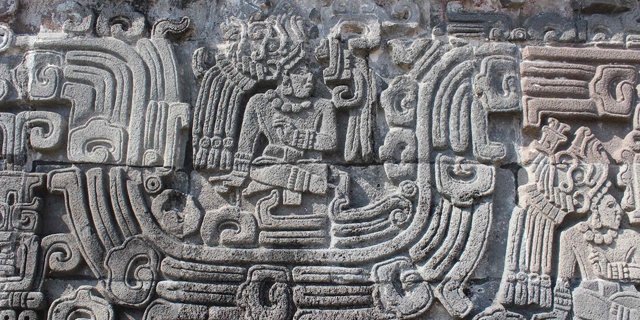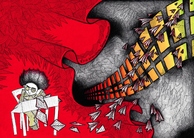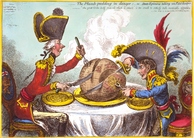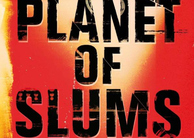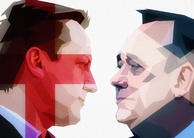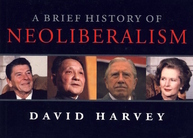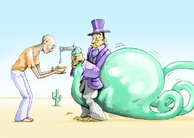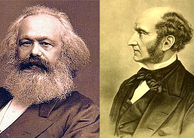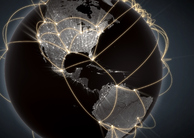|
Liberalism (tagged articles)
The keyword Liberalism is tagged in the following 27 articles.
2022, Vol. 14 No. 09
Perceptions of menstruation as a taboo subject have historically characterized Western and non-Western societies alike and persist today, both perpetuating harmful cultural understandings of women’s abilities and normalizing institutional... Read Article »
2022, Vol. 14 No. 02
In popular international relations (IR) theory, knowledge production is often dismissed as an objective process between the researcher and the empirical world. This article rejects this notion and contends that the process of knowledge production... Read Article »
2021, Vol. 13 No. 02
This paper will attempt to link fundamental ideas and terms of environmental sociology in the context of ecotourism relating to human society and conceptions of nature. Furthermore, connections to neo-Marxist and neo-Gramscian theories will be made... Read Article »
2021, Vol. 13 No. 02
During the 2015 refugee crisis Chancellor Angela Merkel allowed refugees to enter Germany in unprecedented numbers. Her historic decision to adapt the so-called “open-door policy” continues to shape contemporary German politics. More... Read Article »
2020, Vol. 12 No. 09
Since the European invasion of Latin America in the sixteenth century, the concept of indigeneity has been inherently political. In what can only be described as an ongoing ethnocide, colonial powers did everything they could to stomp out the rich... Read Article »
2020, Vol. 12 No. 07
For the past several years, the study of German jurist Carl Schmitt has exploded in China. Floria Sapio remarks that Schmitt has enjoyed “enormous currency among mainland Chinese scholars since the 2000s.”[1] Even though Schmitt has... Read Article »
2017, Vol. 9 No. 11
The arrival of Spanish conquistadors in the “New World” at the end of the fifteenth century triggered an age of violence, oppression, and colonization that lasted until the United States took the stage as a modern colonial power in 1898... Read Article »
2017, Vol. 9 No. 04
Antonio Gramsci’s interpretation and analysis of “hegemony,” its mechanisms, causes and consequences for the Left, is fundamentally an attempt to grapple with how culture and the “common sense of the epoch” (Miliband... Read Article »
2016, Vol. 8 No. 10
This article explores the nature of Canada’s political system as an evolving consequence of its roots in classical liberal thinking coupled with the self-protecting instincts of a variety of elite interest groups. In performing this exploration... Read Article »
2016, Vol. 8 No. 09
Grameen Bank, translated as "rural bank" in the Bangla language, is a grassroots microcredit organization founded in 1983 by Bangladeshi economist Muhammad Yunus to provide new financial opportunities to the poor. Grameen Bank and Muhammad Yunus... Read Article »
2016, Vol. 2015/2016 No. 3
The ‘civilising mission' is a broad ideology that combines four main ideals; Enlightenment ideals, Christian / Evangelical ideas of pre-destination, racist ideas about white superiority and Liberalism. All these ideals have had a significant... Read Article »
2016, Vol. 8 No. 03
Sporting mega-events in Rio de Janeiro, including the 2014 World Cup and the upcoming 2016 Olympics, employ particular tactics of spatio-temporal scale-making to produce a utopic atmosphere of global camaraderie, modern urban development, and sporting... Read Article »
2016, Vol. 8 No. 02
Planet of Slums by Mike Davis (2006) is a startling, terrifying, and honest exposé of the world’s poorest big-city slum dwellers. The book explores the future of an unstable and impoverished urban world, and provides a thematic overview... Read Article »
2016, Vol. 8 No. 02
At 7am in the morning after the Referendum on Scottish Independence, a triumphant David Cameron stood on the steps of number 10 Downing Street and announced to the world that the Scottish people had, with 55% of the electorate voting No, comprehensively... Read Article »
2016, Vol. 8 No. 02
Michael Thompson, reviewing A Brief History of Neo Liberalism by David Harvey, calls it ‘the world according to David Harvey’ (2005). This is an accurate remark: although erring slightly on the side of conspiracy, the book is a breathtaking... Read Article »
2016, Vol. 8 No. 01
Conceiving neo Liberalism as a form of constructivism, an ideological project rather than a doctrine prefigured by ‘human nature’, illuminates a promising path towards countering its impoverishing effect on both the citizen subject and... Read Article »
2015, Vol. 7 No. 06
The concept of a “fourth estate” was first articulated by John Declare, editor of The Times in an article published in 1853. He believed the press had a crucial role to play in British society’s transformation into a representative... Read Article »
2015, Vol. 7 No. 03
Concern regarding the inequity and commodification apparently necessary for the capitalist system to thrive is not new. Marx, in his work Capital: Critique of Political Economy (1867), raised the idea of the fallibility of fetishism, including an... Read Article »
2014, Vol. 2013/2014 No. 1
Today political philosophy is generally conducted in the light of the perceived triumph of Liberalism. That is, it typically proceeds from the assumption that it is unreasonable, if not irrational or pathological, to resist Liberalism whether as... Read Article »
2013, Vol. 5 No. 11
This essay compares Karl Marx’s and J.S. Mill’s understandings of freedom and their analyses of the impediments to its realization. First, this essay argues that the two philosophers share the same premise that progress is possible and... Read Article »
2013, Vol. 5 No. 02
The popular television show Glee (2009-current) features a fictional glee club, the New Directions, which – in the words of the choir director character – is made up of students from “just about every race, religion, sexual orientation... Read Article »
2012, Vol. 4 No. 08
The question of whether economic relations have an impact on interstate military conflict has divided scholars and political thinkers since the Enlightenment. Kant claimed that economic interconnectedness among states would contribute to long-term... Read Article »
2012, Vol. 4 No. 03
The Internet is the world’s great equalizer. As the driving force behind globalization and modern progress, the Internet has enabled us to communicate with others across the world almost instantly and provides a medium for cultural, informational... Read Article »
2011, Vol. 3 No. 12
The rise of superbrands has many implications for the nature of work, workers, and organizations. This paper explores superbrands and their impact in three ways. First, the dynamics of the superbrand Nike, along with the implications of Nike as... Read Article »
2011, Vol. 3 No. 12
As we move from Fordism to Post-Fordism and from Industrialism to Post-Industrialism, the new Market that prevails under Globalization implies many changes to the nature of work and organizations. This new Market dictates, or rather governs, the... Read Article »
2010, Vol. 2 No. 03
“Human rights” is a concept so deeply intertwined into the modern discourse that it seems almost impossible to question it or refer to any standard beyond it. The problematic nature of this issue is not so much that people have different... Read Article »
1999, Vol. 1998/1999 No. 2
In Issue 53 of Interstate, Peter Hand argued that the ‘Third Way’ was nothing but a well packaged combination of rhetoric and soundbites on the part of a government wholly obsessed by presentation.[1] Given the constraints of space... Read Article »
Expedited Article Review
Submit an article and get a decision fast.
If you need a fast decision, INQUIRIES Journal offers expedited processing of your submission for a small fee. Depending on the expedited review option you choose, you can receive a decision in as few as 5-days.
In addition to a shorter review period, the fee supports the journal's continued operation and open-access publishing model. Standard submissions are always free. Submit Now » - Submit an Article to Inquiries Journal -
|





